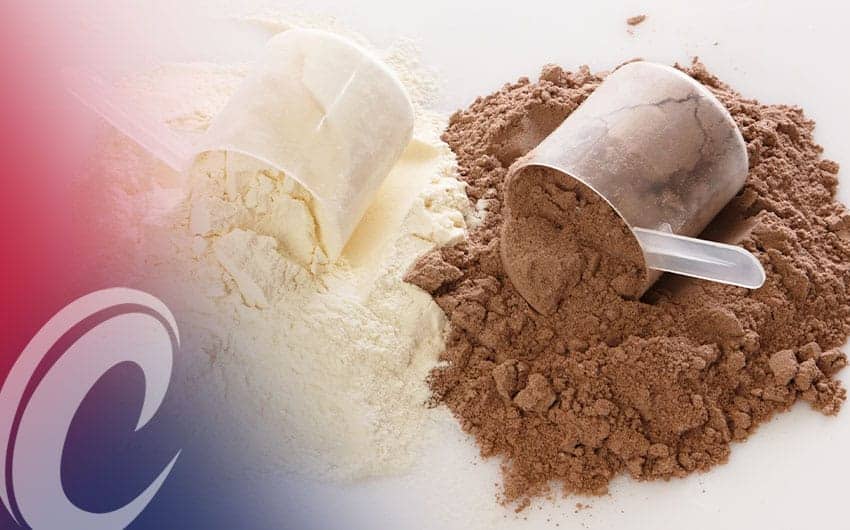Thinking of supplementing your diet with a protein powder? Here are some tips on how to choose the right one for your goals from Precision Nutrition.
► Weight loss / fat loss: If you’re looking to lose fat, pay attention to the protein-to-calorie ratio of your protein powder. The best protein powder for weight loss will be higher in protein and lower in carbs and fat, since the latter two macronutrients will be more satisfying coming from whole foods.
► Muscle gain: To put on muscle, look for a protein powder with a high protein-to-calorie ratio, as the main goal is to consume adequate overall protein. If you’re struggling to get adequate overall calories, a protein powder that’s also rich in carbohydrates can be helpful around workouts.
► Weight gain: For those who are looking to gain any type of weight—most often this is due to illness that reduces appetite—consider powders that are high in protein, carbohydrates, and fat. Particularly if you won’t be getting much other nutrition, it’s important to get all three.
► Meal replacement: If you plan to use your protein shake as a meal replacement, it’s important to get some other nutrients in there, too. While there are protein powders that come with additional nutrients built-in, we recommend making your own shake instead by incorporating fruit, vegetables, a source of healthy fats, and possibly more. That way, you get all the whole-food benefits of these ingredients.
► Recovery/athletic performance: There are a variety of suggested ratios of carbohydrate and protein intake post-exercise to maximize recovery, but there isn’t much evidence showing any particular ratio is optimal. A protein powder with a 2:1 or 3:1 carbohydrate-to-protein ratio might be beneficial, but ultimately your total macronutrient and calorie intake for the day is the most important determining factor in athletic recovery.6
If you’re an athlete competing in multiple events in one day, consuming a beverage with 30 to 45 grams of carbs, 15 grams of protein, and electrolytes (sodium and potassium) in 600 mL (20 ounces) water for every hour of activity could help with recovery and performance.
Consider how much taste matters to you.
It’s important to choose a protein powder that you’re likely to consume consistently. Enjoying the way it tastes is one way to help ensure that. Of course, the best-tasting protein powder option varies from person to person.
As we already mentioned, you may have to experiment with a few different flavors and brands before finding the right protein powder for you.
Before you commit to a large package, try to get a sample pack of the protein powder. Larger nutrition supplement companies usually offer these.
Protein powder isn’t a nutrition essential.
But it is a useful tool.
And here at Precision Nutrition, we’re all about picking the right tool for the job.
Mike Hannegan is an Athletic Trainer and Precision Nutrition Consultant at Compete Sports Performance and Rehab in Orange County, CA. Mike is a former Athletic Trainer in the National Hockey League with the Anaheim Ducks and St. Louis Blues.

